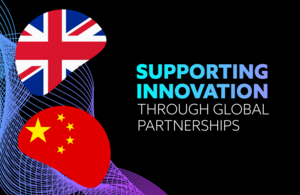
The UK is seeking to deepen carefully targeted scientific collaboration with China as Science Minister Lord Vallance leads a high-level delegation to Beijing, aiming to unlock joint research
opportunities while maintaining a firm national-security stance.
Vallance, joined by senior figures from the National Academies, leading universities and UK Research and Innovation, will meet Chinese officials, academics and business leaders during the 11th UK-China Joint Commission on Science and Technology. The talks are expected to identify specific areas of cooperation in climate and environmental science, planetary science and astronomy, health research, and agriculture and food systems.
The UK describes its approach as pragmatic: open to cooperation in areas that offer clear benefits, but uncompromising on security. China is considered a global research heavyweight, investing nearly £380 billion annually in R&D and employing a quarter of the world’s research workforce. The UK, with four of the world’s top ten universities and a rapidly expanding £1.2 trillion tech sector, sees strategic advantage in mutually beneficial collaboration.
“Science is international by definition, and we can achieve more when we work with others,” Vallance said ahead of the meetings. “While we will never compromise our values or national security, we have to be open to opportunities that improve lives and grow our economy.”
The visit comes amid broader UK efforts to stabilise ties with China. In September, Trade Secretary Peter Kyle reported securing more than £1 billion in market-access wins for British companies over five years, including in automotive and food and drink exports.
As part of the trip, Vallance will tour the Institute for Carbon Neutrality at Tsinghua University and the UK-China Carbon Capture, Utilisation and Storage Centre in Guangzhou, where researchers from both countries are collaborating on decarbonisation technologies.
Despite the cooperative tone, UK officials say disagreements will be raised directly. Vallance is expected to challenge China over its support for Russia’s war in Ukraine, the erosion of rights and freedoms in Hong Kong — including the case of British national Jimmy Lai — and alleged interference in UK democratic processes. London will also reiterate concerns about data handling, intellectual property protection and technology transfer.
The government argues that refusing to engage would leave the UK less secure, not more. By advancing targeted, long-term and interest-driven cooperation, ministers say both countries — and global science — stand to gain.






































